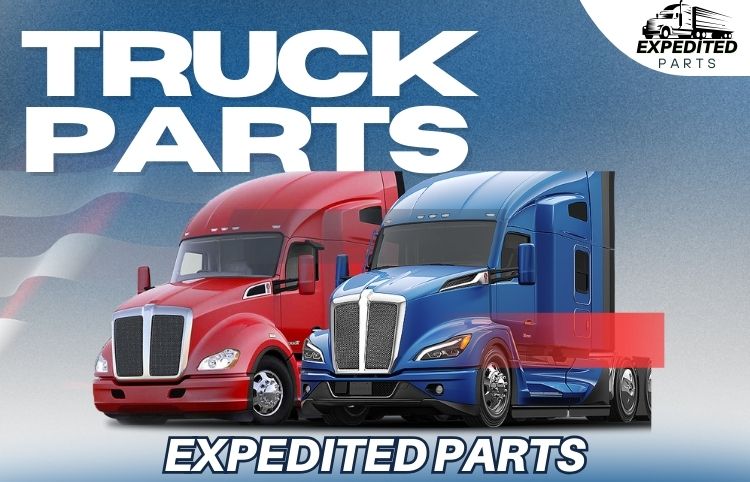Introducing top-notch valves designed specifically for commercial vehicles. Experience unparalleled durability and performance for optimal operations.
Robust valves tailored for commercial vehicles play a crucial role in ensuring the smooth functioning of these heavy-duty vehicles. These valves are specifically designed to withstand the demanding conditions that commercial vehicles encounter on a daily basis. Whether it is the transportation of goods or the delivery of services, commercial vehicles are subject to constant wear and tear. Therefore, it is essential to have valves that can handle high pressure, extreme temperatures, and heavy loads. These robust valves are engineered with precision and durability in mind, ensuring efficient and reliable performance. From air brake systems to hydraulic systems, these valves are indispensable in maintaining the safety and operational efficiency of commercial vehicles.
: The Ultimate Guide to Choosing Robust Valves for Commercial Vehicles
The Ultimate Guide to Choosing Robust Valves for Commercial Vehicles
Choosing the right valves for commercial vehicles is crucial for ensuring optimal performance and longevity. Robust valves are especially important as they are designed to withstand the demanding conditions and heavy use that commercial vehicles often encounter. Here is a comprehensive guide to help you choose the most suitable robust valves for your commercial vehicles:
- Check the valve type: Different commercial vehicle systems require different valve types. Common valve types used in commercial vehicles include pressure relief valves, solenoid valves, check valves, and control valves. Assess your vehicle’s needs and choose the appropriate valve type.
- Consider the valve size and capacity: The size and capacity of the valve should match the requirements of your commercial vehicle. A valve that is too small may cause restricted flow, while a valve that is too large may result in inefficient operation.
- Check for certifications and standards compliance: Reliable valve manufacturers ensure that their products meet industry standards and certifications. Look for valves that comply with standards such as ISO 9001 or OEM specifications to ensure their quality and reliability.
- Consider the application and environment: Commercial vehicles operate in various environments and conditions. It is important to consider factors such as temperature, pressure, and compatibility with different fluids when choosing valves for your vehicles.
- Evaluate maintenance requirements: Some valves may require more frequent maintenance or replacement than others. Consider the ease of maintenance and availability of spare parts when choosing robust valves for your commercial vehicles.
By following this guide, you can ensure that you select the most suitable robust valves for your commercial vehicles, thereby enhancing their performance, reliability, and overall lifespan.
: Why Robust Valves are Essential for Commercial Vehicle Performance
Why Robust Valves are Essential for Commercial Vehicle Performance
Robust valves play a crucial role in ensuring optimal performance and reliability of commercial vehicles. Here are some key reasons why robust valves are essential for commercial vehicle performance:
- Efficient fluid flow management: Valves are responsible for controlling the flow of various fluids within commercial vehicle systems, such as the engine oil, coolant, fuel, and hydraulic fluid. Robust valves ensure precise flow control, promoting efficient operation and minimizing energy wastage.
- Enhancing safety: Reliable valves are crucial for maintaining optimal braking performance, stability control, and other safety mechanisms in commercial vehicles. Robust valves contribute to the overall safety of the vehicle by ensuring accurate and timely response in critical systems.
- Compatibility with different fluids and environments: Commercial vehicles often operate in diverse environments and handle various fluids. Robust valves are designed to be compatible with different fluids and offer resistance to corrosion, chemicals, and other harmful substances, ensuring optimal performance in any operating condition.
Here are some key tips and advantages of using robust valves:
- Regular Inspection and Maintenance: Conduct regular inspections to identify any signs of wear and tear in the valves. This can include checking for leaks, corrosion, or any other issues that may affect their performance. Timely maintenance and repair can prevent further damage and ensure optimal performance.
- Improved Efficiency: Utilizing robust valves can enhance the overall efficiency of your commercial vehicles. These valves allow for precise control of fluids, ensuring optimal performance and minimizing energy wastage. This, in turn, can lead to reduced fuel consumption and increased cost savings.
- Enhanced Safety: Robust valves offer a high level of safety by maintaining proper control over fluid flow. This helps prevent any potential accidents or malfunctions that could occur due to valve failures. Enhancing the safety of your commercial vehicles is crucial for both the driver’s well-being and the protection of the cargo being transported.
The Top Benefits of Using Robust Valves in Commercial Vehicles
- Optimal Performance: With robust valves, you can achieve precise control over fluid flow, allowing for optimal performance of critical systems within the commercial vehicles. This improved control leads to increased efficiency and reduced energy wastage.
- Cost Savings: By using robust valves, commercial vehicles can operate more efficiently, leading to reduced fuel consumption and lower operational costs. Additionally, the durability of these valves means less frequent maintenance and replacement, resulting in long-term cost savings.
- Enhanced Safety: Robust valves are designed to maintain proper control over fluid flow, minimizing the risk of accidents or malfunctions. Ensuring the safety of your commercial vehicles is essential for both the driver and the goods being transported.
A Comprehensive Overview of the Different Types of Robust Valves for Commercial Vehicles
Commercial vehicles require robust valves to ensure efficient and safe operation. There are several types of valves designed specifically for commercial vehicles, each serving different purposes. Here is a comprehensive overview of the different types of robust valves commonly used in commercial vehicles:
- 1. Air Suspension Valves: These valves are responsible for controlling the air pressure in the suspension system, providing a smooth and comfortable ride for the driver and passengers.
- 2. Brake Valves: As the name suggests, brake valves play a crucial role in controlling the brake system of commercial vehicles. They regulate the flow of air to ensure proper braking and the ability to stop effectively.
- 3. Fuel Control Valves: These valves are responsible for controlling the flow of fuel to the engine, ensuring proper combustion and optimum performance.
- 5. Transmission Valves: Transmission valves control the flow of hydraulic fluid within the transmission system, allowing for smooth gear shifting and efficient power transfer.
10 Common Problems with Valves in Commercial Vehicles and How to Solve Them
| Problem | Solution |
|---|---|
| 1. Valve Leakage | Inspect and replace faulty seals or gaskets. |
| 2. Valve Sticking | Clean or lubricate the valve to remove any debris or rust buildup. |
| 3. Valve Noise | Inspect and replace worn-out or damaged valve components. |
| 4. Valve Jamming | Check for any obstructions and remove them. Lubricate the valve mechanism if necessary. |
| 5. Valve Overheating | Ensure proper lubrication and cooling systems are functioning correctly. Check for any restrictions in fluid flow. |
| 6. Valve Inefficiency | Clean or replace clogged filters. Inspect and adjust valve settings if necessary. |
| 7. Valve Corrosion | Apply protective coatings or use corrosion-resistant materials for valves. Regularly inspect and clean valves. |
| 8. Valve Seal Failure | Replace worn-out or damaged valve seals to prevent leaks and ensure proper sealing. |
| 9. Valve Misalignment | Properly align valves and adjust connections or linkages as needed. |
| 10. Valve Control Issues | Inspect and repair damaged or malfunctioning valve control systems. Replace faulty control components if necessary. |
By addressing these common valve problems promptly and implementing the recommended solutions, commercial vehicle owners and operators can ensure optimal valve performance, minimize downtime, and maintain safe and reliable operations.


